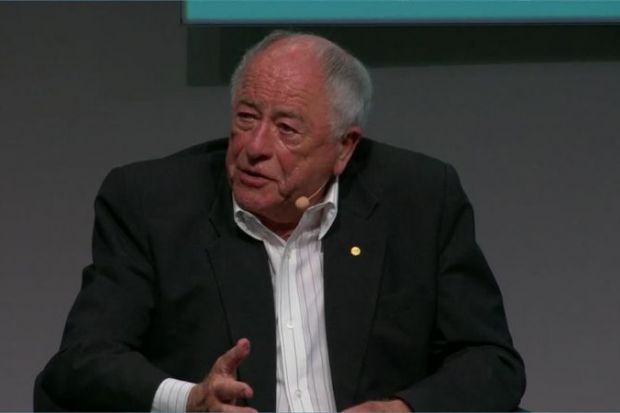A Nobel laureate has been criticised for claiming he has faced discrimination for being a man in science.
In an unexpected outburst, Kurt Wüthrich, who won the Nobel Prize in Chemistry in 2002, interrupted a talk about the future of structural biology at a scientific conference in Germany to denounce what he saw a culture of bias against men at the event.
Speaking at the annual Lindau Nobel Laureate Meeting, where dozens of Nobel laureates and hundreds of young scientists have gathered, the Swiss chemist warned the audience that “science is not going to be the main subject, unfortunately”.
Brandishing a copy of a recent newspaper interview with Germany’s only female Nobel laureate, Christiane Nüsslein-Volhard – with the headline “One should be careful otherwise there will be discrimination against men” – Professor Wüthrich called on the conference organisers to provide a translated version of the German-language interview to all delegates.
“I hope you will get this article to read before the meeting is over,” he said.
“As a male scientist, I have a feeling of discrimination when I am here, in the climate that this meeting is being held,” explained the 84-year-old laureate, who has laboratories at ETH Zurich and the Scripps Research Institute, in California, as well as at ShanghaiTech University in China.
More than 40 Nobel laureates have attended the Lindau summit, including France’s Emmanuelle Charpentier, who won the Nobel Prize in Chemistry in 2020 for the CRISPR gene editing technology, and American chemical engineer Frances Arnold, who won the chemistry prize in 2018. To date, only 61 women have won the Nobel Prize compared with 898 men, with only eight female chemistry laureates.
Professor Wüthrich’s comments were, however, strongly criticised by an early career female scientist in the following Q&A session. “As a female researcher it has been very uncomfortable for myself to hear a male Nobel laureate talk about so-called male discrimination,” she said.
“There might be individual cases of discrimination towards men but it is nothing compared to the systematic and structural discrimination that women have faced, especially in the STEM fields.”
The commenter also criticised the panel’s moderator, Wolfgang Lubitz, director emeritus at the Max Planck Institute for Chemical Energy Conversion, for trying to avoid discussion of Professor Wüthrich’s comments and move the debate towards structural biology, saying it was an example of “silencing women”.
However, Professor Wüthrich told the delegate that he felt “unjustly attacked by you”. “I was using an article by one of your colleagues – Mrs Christiane Nüsslein-Volhard,” he said, adding: “Mrs, not a man.”
The German laureate’s perspective was unlikely to match the views of most younger female scientists, the commenter responded.
“She is an extremely successful Nobel laureate and you were using her article – you could have used any young female scientist and asked how they were feeling,” she said.
Professor Wüthrich’s comments followed a panel discussion the previous day, in which Professor Nusslein-Volhard had questioned whether diversity was essential for research excellence.
The foundation behind the Nobel laureate meetings in Bavaria is also committed to supporting diversity, with one of its goals being that “all work and research environments, as well as all structures related to that, shall support scientific talent regardless of its background in an inclusive, diverse and non-discriminatory manner”.
请先注册再继续
为何要注册?
- 注册是免费的,而且十分便捷
- 注册成功后,您每月可免费阅读3篇文章
- 订阅我们的邮件
已经注册或者是已订阅?

